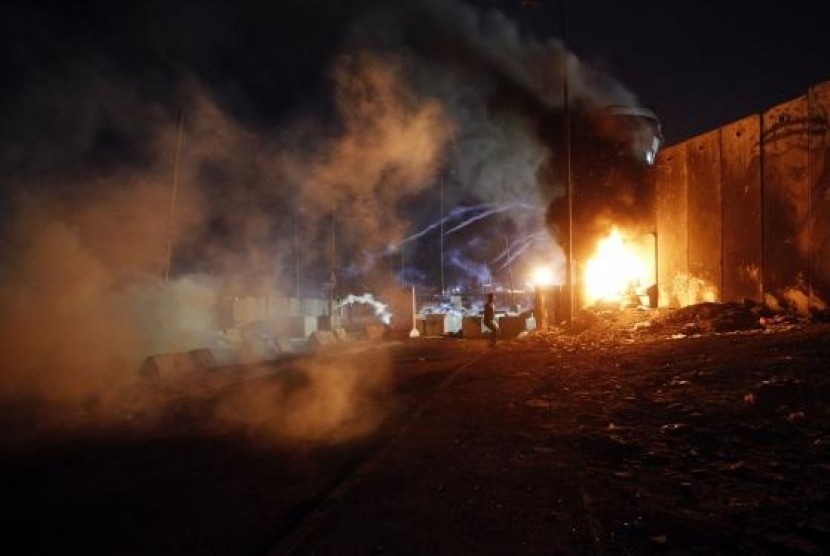REPUBLIKA.CO.ID, By: Wildan Nasution *)
Clashes or mass brutalism is still connoting the development of reform (or even a regression of democracy?) in Indonesia. My notes suggested that the clashes were quite intensifying throughout July 2016.
In early to mid-July 2016 for example, clashes, be it youth brawl or tribal war were still characterizing the Indonesian political diaspora, as happened in Tegalpanggung, Danurejan, Yogyakarta, in which the youth from Kampung Gemblakan Bawah Suryatmajan taunted each other with the youth from Ledok Tukangan Tegalpanggung, Danurejan.
Meanwhile, in Kwamki Narama, Mimika, Papua, there happened a provocation to war between lower and upper tribe because there was one lower tribe man dead being arrowed by the upper tribe man. Later in the West Seram Regency, Maluku, there was an incident in which an unknown man chased and threw blunt objects to two young men from Latu village on their way to one of local district.
A clash in which the people threw rocks to each other also happened on the border of the villages in Hative Besar Village, Teluk Ambon District, Maluku. Other clashes in the form of stopping and sweeping other villages ‘people took place in Kumpe Ilir District, Muaro Jambi Regency as the results of a thrashing of a man from one village by another man from another village.
A clash between two groups of men from two different alleys also ever occurred in Jalan Poros Trans Sulawesi, Palopo-Makassar, Mancani District, Palopo City, South Sulawesi, resulting a 3 KM traffic congestion.
In Papua, it seems that the phenomenon of inter-tribal wars and fighting between ethnics are easily sparked. For instance, a clash between Damal Tribe and Amungme has resulted in two people died, two people were injured, and a number of material losses and damage due to the burning during the conflict. It happened on July 25 of 2016, and eventually could be handled by local authorities.
A day after, in one of bus terminal in Expo Area of Waena, Jayapura City, Papua, there occurred an assault that led to a clash amongst the people from different ethnicities using rocks and sharp weapons. One of the causes was because the people were getting drunk.
Who to Blame and Who Gets the Advantages?
These clashes were triggered by various causes such as provocation, misunderstandings, and other initially small matters. Meanwhile, the inter-tribal conflicts in Papua were prone to be politicized by the Free Papua Organization’s (OPM) political wings. They might justify that the situation in West Papua throughout their integration to NKRI has always been insecure and unconducive.
The more intensifying yet the slower the handling of these inter-tribal clashes could create opportunity for certain interest groups to politicize the issues, creating some unconducive and insecure situation. The clashes among the youth triggered by lack of nationalism in some regions are alarming because it portrays the bad attitude, arrogance, and lack of education of the youth that lead to social instability in their home regions.
I believe, the continuity of the clashes especially those involving the youth is a great challenge for Education Ministry and the Ministry of Youth and Sports. They must promote multiculturalism and pluralism within Indonesian diversity to realize social transformation and maturity of morale of Indonesian youth.
In every clash, the people must wonder who must be blame. I believe this situation indicates that the local figures both formal and informal leaders have failed to find solution for this matter. This also shows that the values of local wisdom and culture that are implemented by traditional colloquy, tepo seliro, and togetherness have faded away, so that the social cohesion is easily torn apart.
Then who takes the advantages of these clashes? Many suspects the foreign compradors within the country, some interest groups both the narrow-minded religious fanatics and those promoting new social and cultural values or even new customs and ideology that are not in line with both our constitution and ideology.
*) The author is Papua issues observer. Residing at Batam, Kepri



